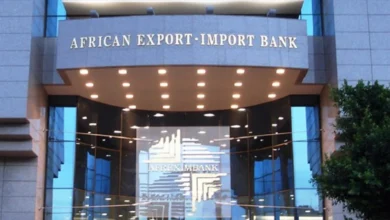
The Central Bank of Kenya (CBK) has again led the park by officially launching Dhow CDS, a central depository infrastructure that allows the investor to work remotely at the comfort of their smart phones.
This reminds me of my earlier career in banking – 2009 a or around, where shareholders and government security investors, flocked to the bank to open CDS accounts as they surrendered their physical bearer certificates popularly called share certificates in exchange of the accounts.
The investors – mostly elderly, gave their tales of how they travelled to Nairobi to purchase securities and in exchange given the certificates. They would then continue with their visits to Nairobi for redemption and collection of divided cheques which was mostly biannually. The certificate holder had no way of knowing their portfolio movements and it was even worse when this paper was misplaced or got lost. Transacting with the certificate took an average of two weeks.
Then came the CDS accounts where the transition coincided with a number of privatization. Opening of an account was no longer a Nairobi affair as well as making primary or secondary sales became possible through the branches of commercial banks that offered custodial services or through the stock-brokers. This increased the security participation due to the efficiency created.
The process of account opening still remained manual with investors presenting themselves to the bank to open CDS accounts. This has made investors especially our community living in the diaspora shy from the market. Visibility of one’s portfolio was not efficiently been timely with the CDS accounts’ era.
The Dhow CDS has come to bring efficiency in monetary operations, inclusivity in savings, transparency in the dealings and ultimately creating confidence especially to the inter-bank borrowing in the Horizontal Repo. The infrastructure is such that one can open a CDS account in 15 min, evidenced by the 7,000 accounts opened since the go live of the system on 31st July, 2023. This is an impressive number compared to 44,000 accounts that existed before the Dhow CDS.
Dhow, from the Swahili word ‘dau’ will bring in more ‘washika dau’ (Kiswahili for participants/stakeholders) into the security market as the empowerment tool to the customer involvement has been enhanced. It is expected that more Kenyans locally and living in the diaspora will save and invest more into the security market as the system has increased visibility of one’s portfolio and made the investors participate in settlement.
With the ease of access to the security market now created, the president while launching the system on the 11th September 2023, proposed to the CBK to consider lowering the floor to investment from the current KSh. 50,000 to around KSh. 5,000 per unit of government security. Speaking on behalf of the majority ‘who could not be allowed past the gate’, the president was keen to expanding inclusivity through lowering the investment threshold.
In September 2008, the CBK introduced the Horizontal Repo, where banks would borrow from each other using T-Bills and T-Bonds as security. By December 2022, the transactions had not taken off as expected. This was mainly because the collateral remained the property of the borrower even after the lender grants facility. The reform was made possible in within the month that allowed the lender own the security until the full amount is settled.
Horizontal Repo will greatly help in managing liquidity among the commercial banks and especially the smaller ones and will relieved the CBK the pressure of bail-outs to address sort-term liquidity by distressed banks.
Dhow CDS will make the transferability of the collateral between parties agreeing to Horizontal Repo possible in an efficient manner and thus enhancing liquidity and reduce the inherent and systemic risk related to low commercial bank’s liquidity, creating market and banks’ confidence.
Kenya’s budget deficit stands at KSh. 718B for the KSh 3.68T total government expenditures for the 2023/24 FY. The government intends to borrow KSh. 316B from the domestic market. Dhow CDS will be pivotal in encouraging and enhancing retail participation. This would create a culture of savings which is converted into investment for economic growth and development.





